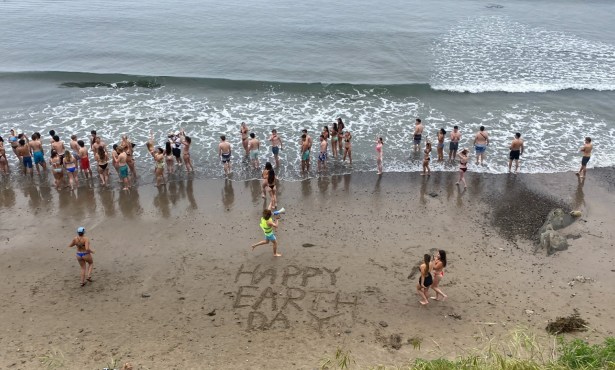What the Supreme Court’s Latest Ruling Means to the Central Coast
Local Experts React to Supreme Court’s Decision to Cut Back EPA’s Authority

In what has been a whirlwind week full of historical Supreme Court decisions, the court’s latest ruling to restrict the Environmental Protection Agency’s (EPA) power to make “generation-shifting” regulations may not have an immediate impact on areas with already-progressive environmental policies — like California and Santa Barbara County — but according to local experts, it could have big implications for government agencies making new rules going forward.
“Nothing could be more devastating to our efforts to curb climate change policing than this Supreme Court decision. It’s horrible,” said 1st District County Supervisor Das Williams, one of Santa Barbara’s strongest political voices for clean energy and environmental justice.
Williams serves as co-chair of the Central Coast Clean Energy (3CE) policy board, which recently recommended the purchase of an increased amount of geothermal energy in an effort to reach 60 percent renewable energy by 2025, and 100 percent renewable energy by 2030, a goal he says is “10 years earlier” than the statewide goal.
The Central Coast’s green energy policies help pave the way for policy making across the country, he said, but the Supreme Court’s decision on West Virginia v. EPA could hamstring states that still rely heavily on coal and gas.
“Not all the nation is going to move as quickly as we are,” Willliams said. “The EPA is vitally needed in states that are still burning coal.” He called the ruling “enormously short-sighted,” though he remained optimistic about the Central Coast reaching 100 percent renewable energy well before the state and nationwide timelines.
Sign up for Indy Today to receive fresh news from Independent.com, in your inbox, every morning.
Dr. Leah Stokes, assistant professor of political science at UC Santa Barbara, hosted a forum that dove deep into the Supreme Court ruling and what it meant in the context of environmental policy. Stokes’s book, Short Circuiting Policy, examines how utilities and interest groups have promoted climate denial and weakened clean energy laws in recent years.
During the forum, which was hosted via Twitter by Evergreen Action and Earthjustice, Stokes explained that the recent decision was limited in its scope and interprets a specific section of the Clean Air Act, ruling that the EPA does not have the authority to adopt “generation-shifting rules” — or rules that would require power plants to use other methods of producing energy aside from burning coal. But the majority opinion leaves just enough “malleable” language, she said, to open the door for any government regulation to be called into question.
This open-ended interpretation relies on the “Major Questions Doctrine,” an idea raised in the latest decision by this Supreme Court’s conservative majority. It states that if a government agency seeks to decide an “issue of major national significance,” the action must be explicitly authorized by Congress, meaning only Congress can take “major steps” to tackle “major problems.”
In Chief Justice John Roberts’s response to West Virginia v. EPA, he writes that the agency’s requirement that power plants establish the “best system of emission reduction” amounts to the EPA looking for a major, generation-shifting change away from coal. The fact that the EPA’s requirement “raises an eyebrow,” in Roberts’s opinion, means that it is making a decision that should only fall to Congress.
The ruling is the latest from what Stokes called a “radical, illegitimate” Supreme Court, which she said “did backflips to take up this case.” The concern, she said, is that future regulations may be affected by this new precedent, in a Supreme Court where six of the nine members were appointed by presidents from the Republican Party, which “has long fought any type of climate-change-related regulations.”
These justices, she said, “are really doing what they themselves as individuals want to do; they’re not thinking about precedent; they’re not thinking about the will of the people.”
While the decision may have cracked the door for future political and legal challenges, Stokes said that the EPA still has the authority to regulate greenhouse-gas emissions. “It just underlines — if we could bold, italicize, and underline it any more — how critical it is for Congress to act and pass the climate and clean energy investments,” Stokes said. “The administration still has a lot of tools in the toolbox.”
Support the Santa Barbara Independent through a long-term or a single contribution.



